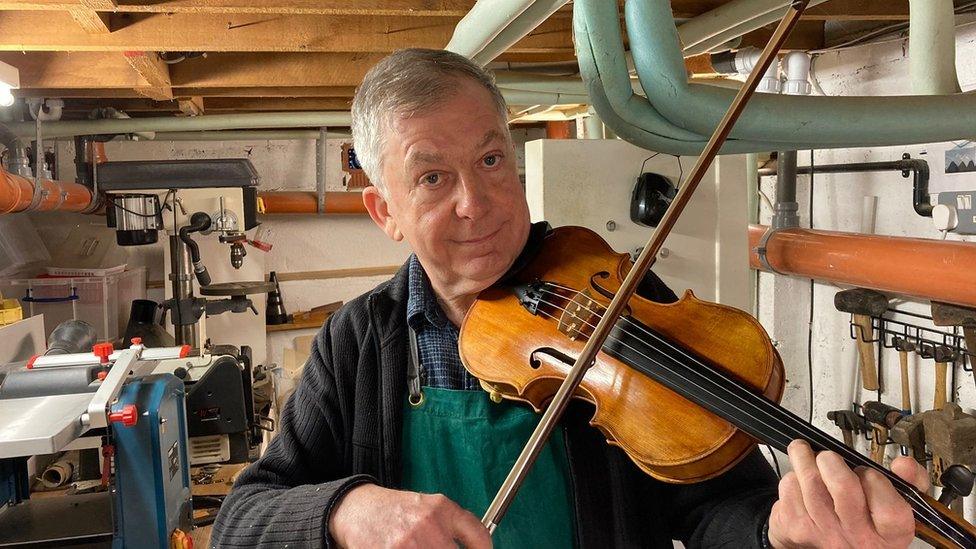Ukraine: Vegan refugee struggling to find a home
- Published
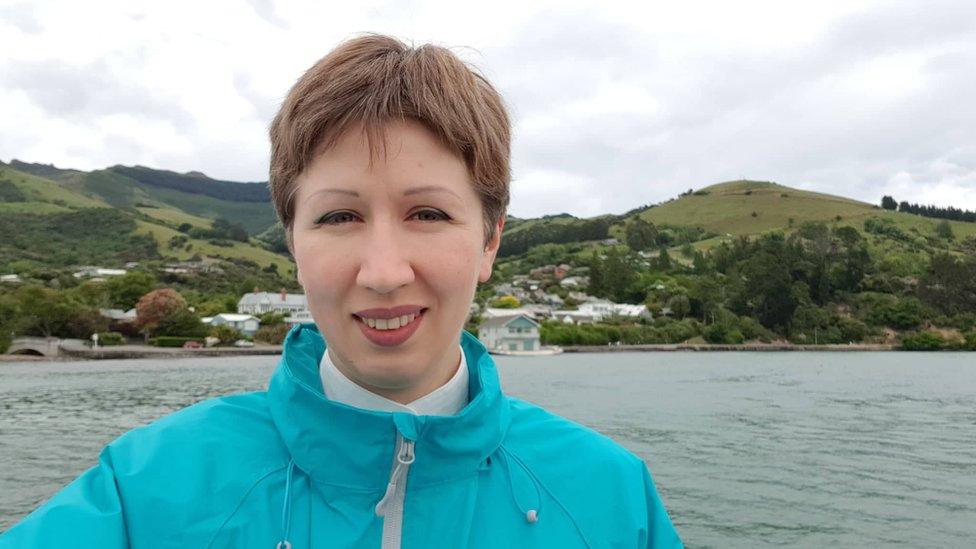
Oksana Kopanitsyna says she is looking for a home, but wants it to respect her beliefs
A woman who fled Ukraine has said she feels "isolated" after failing to find a vegan-friendly host.
Oksana Kopanitsyna said being in the same room as someone eating or preparing meat was like "someone was cutting a child in front of you".
Now living in a bed and breakfast in Ystrad Mynach, Caerphilly county, she said her beliefs were being tested as she looks for her own place to live.
The charity Vegan Society said this problem was not uncommon.
Oksana was living in Kyiv when she decided it was no longer safe to stay and began her long journey through Europe to the UK.
She left her family, her job and her friends behind due to the war.
Her grandparents had told her stories of starvation from the past, and when supermarket shelves began to empty, she became "very scared".
She is dependent on medication and began her journey to Wales in early March, spending nights on train station floors, camping and sleeping on people's sofas.
Oksana wants to work and rent her own home, but while waiting for a bank account and job responses, she said she had no choice but to live in the accommodation provided for her.
'A non-vegan home may not want me'
Originally from Donetsk, Oksana made connections with vegans across the world and was offered a place to stay in south Wales with a friend and his family.
However, she said she was asked to leave abruptly after discussions about veganism and animal by-products, such as leather.
Since then she has been trying to find a home that caters to her needs but said it had been a challenge.
"With like 6% of Wales vegan and then those willing to take me on, my chances are probably under 1%," she said.
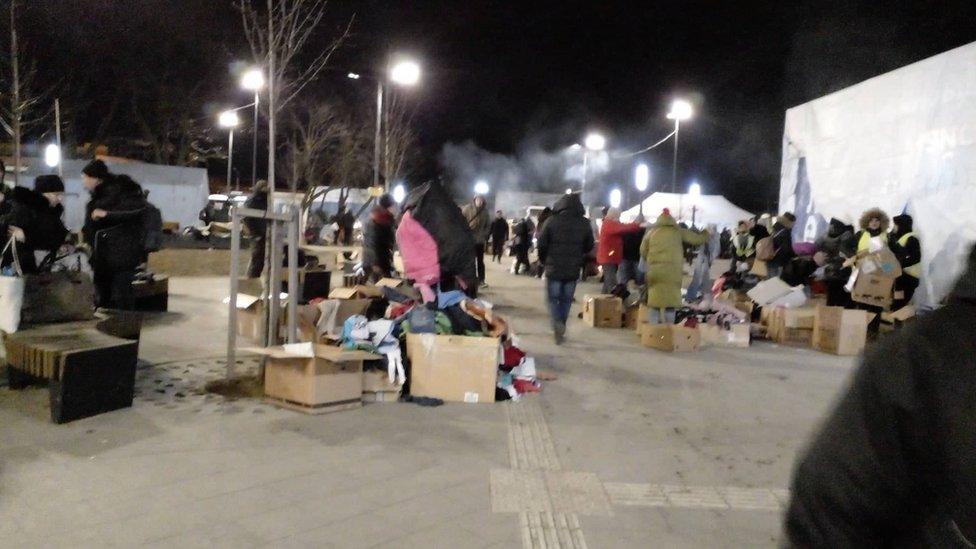
Oksana spent a night in sub-zero temperatures in March trying to get out of Lviv
'How would it be for you if someone was cutting a child in front of you?'
Oksana said she feels "traumatised" watching people eat meat.
She has said she would stay in any home she is offered, but cannot share a fridge with non-vegans or be in the room when they are cooking or eating animal products.
"I will have my own fridge I will keep in my room and I going to pay them for electricity," she said.
"How would it be for you if someone was cutting a child in front of you or keeping body parts in the fridge and you just see a hand or half of face? That is what it feels like for me."
Refugees say they have received offers for rooms in exchange for sex
She said Caerphilly council had been "so helpful" and were trying to find her a family to suit her needs but said she knows it comes last due to the number of people looking for a host family.
"It's hard for people from Ukraine already because lots of people try to take advantage, renting small rooms for hundreds or in places far away from transportation," she said.
"And so, even a regular person it's hard but, for me, it's even harder."

What is veganism?
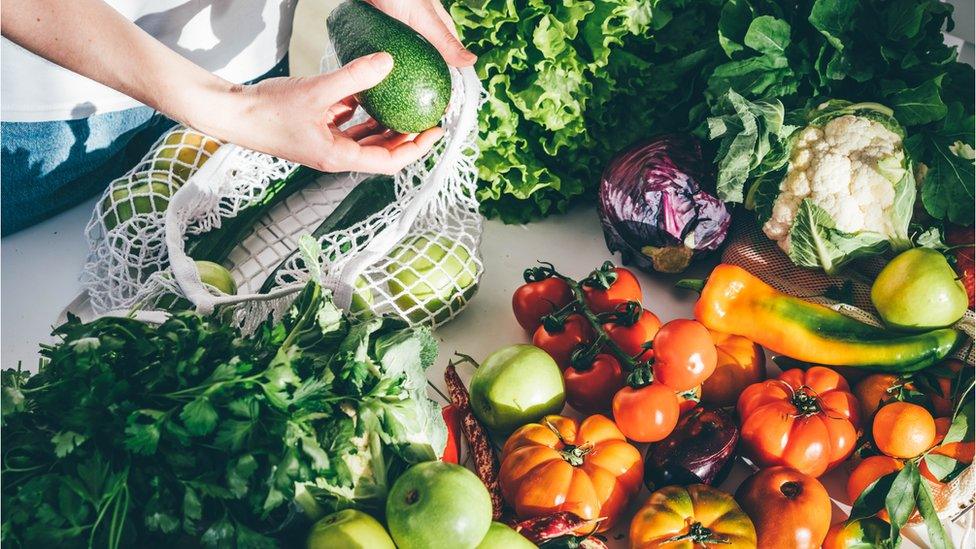
Vegans do not eat animals or use their by-products - including milk, eggs and leather
A vegan is someone who doesn't eat or use animal products.
Unlike a vegetarian diet - where people do not eat meat or fish - a vegan diet avoids all animal products like dairy, eggs and even honey, as well as meat and fish.
Some people prefer to call this way of eating 'a plant-based diet'.
Following a vegan lifestyle also means only using or buying cosmetics and clothes free from animal products.
Research by the Vegan Society found the number of vegans in Great Britain increased from 150,000 in 2006 to 540,000 in 2016.
Many believe the number of people who call themselves vegans could now be in the millions.

Vegan chef dumps London for Wales
The charity Vegan Society said someone's veganism needs to be taken as seriously as religious and allergy requirements and it was understandable a vegan refugee would want to live "in a plant-based household where their values and views are shared by others".
It added: "Being forced to leave the entire life they know behind is horrific enough, so finding somewhere they can feel safe and respected in an otherwise unfamiliar community, where they can comfortably sustain the values they hold close, shouldn't be a privilege.
"It would be great to see more available support to accommodate vegans, whose ethical beliefs fall within the protection of the law just as those with religious beliefs, so it's important their views are acknowledged and respected in the same way."
- Published25 March 2022
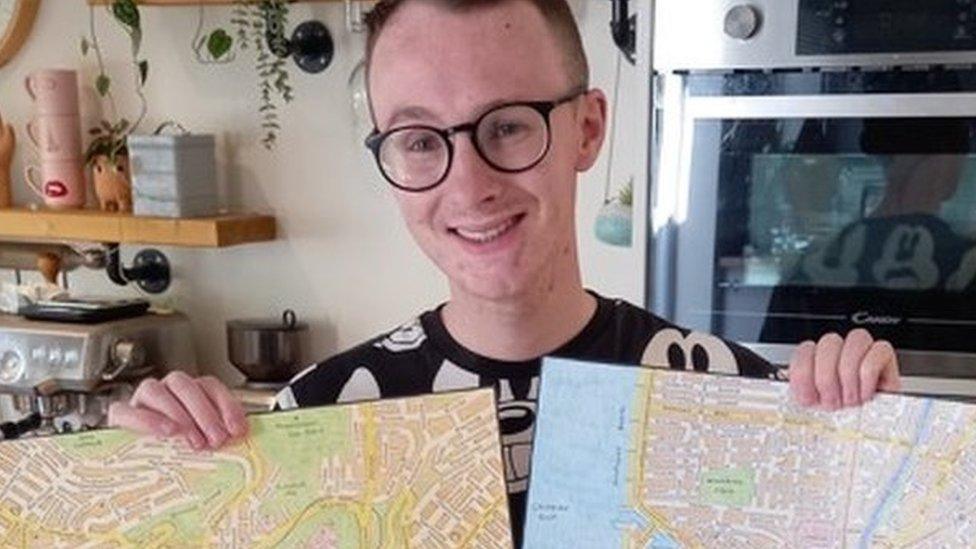
- Published3 July 2021

- Published8 May 2022
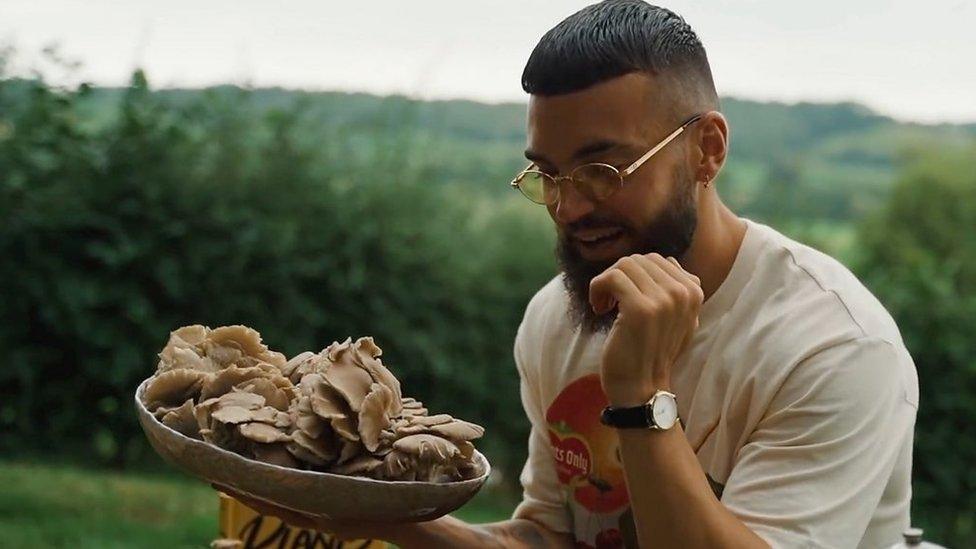
- Published18 January 2022
